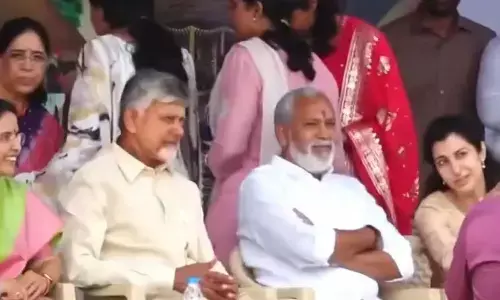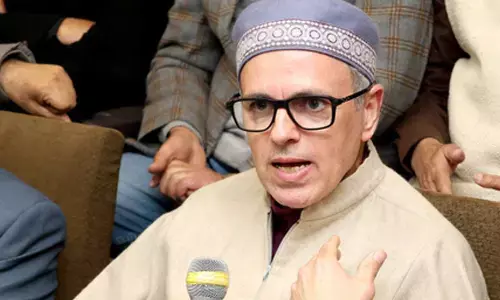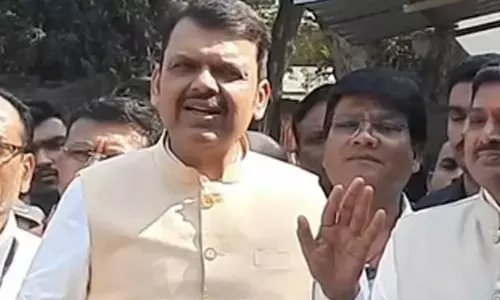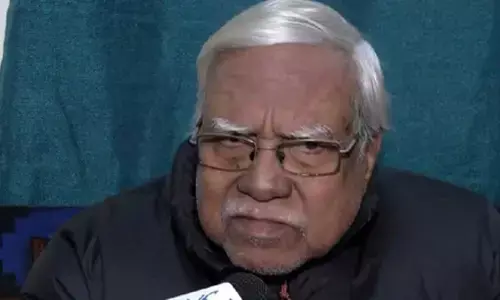Operation Aakarsh
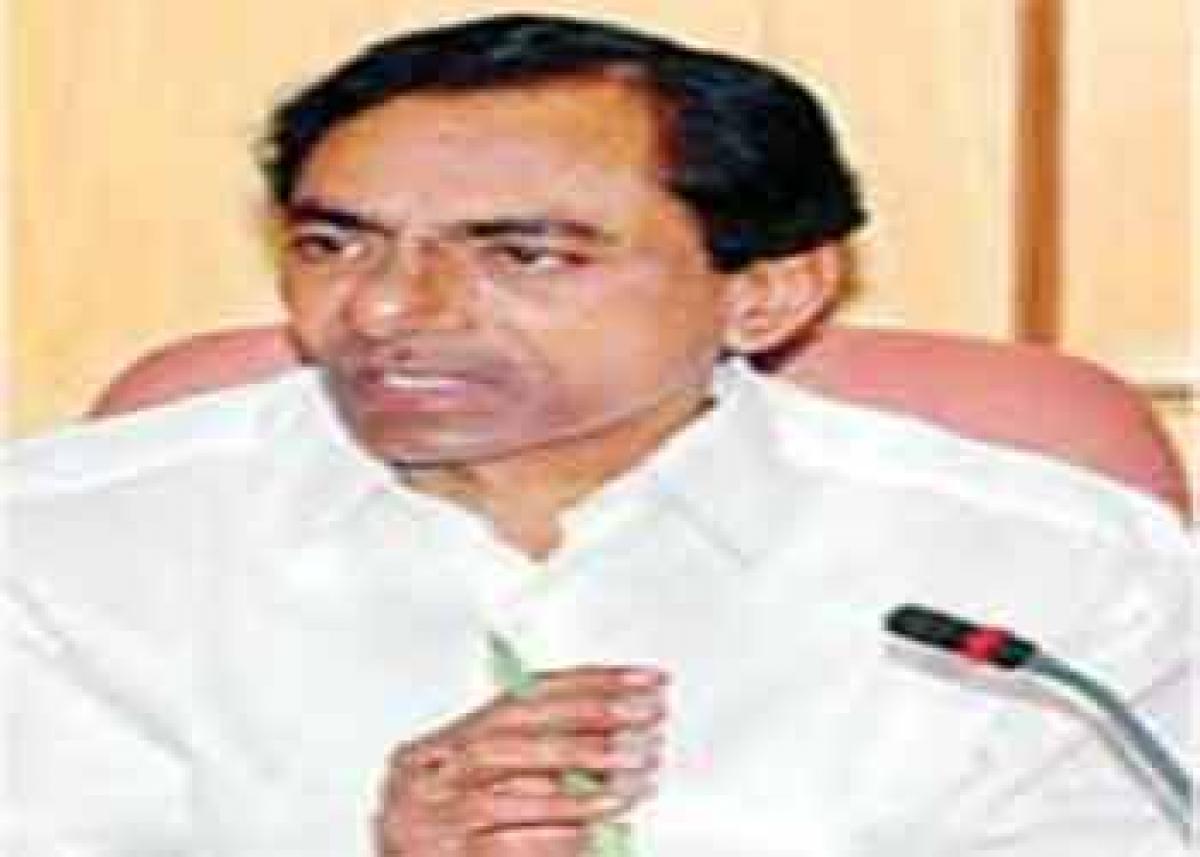
The politics of opportunism is pervading the political landscape of the two Tel- ugu states. The victims are dif- ferent. The perpetrators are dif- ferent. The actors are changing, but the enacted play remains the same.
.jpg) The success of the TRS strategy driven by political short-sightedness and perceived compulsions would largely depend on the performance of KCR government and the individual legislators who now join the party. Anyone who owes his or her allegiance to the leadership of KCR is considered a Telangana loyalist.
The success of the TRS strategy driven by political short-sightedness and perceived compulsions would largely depend on the performance of KCR government and the individual legislators who now join the party. Anyone who owes his or her allegiance to the leadership of KCR is considered a Telangana loyalist.
The political history has no conclusive proof to suggest that such a strategy would always yield a positive result. Mere entry and exit of leaders need not change the balance of forces at the grassroots level. These leaders joined the TRS more out of convenience than conviction. The chemistry may change once the government invites anti-incumbency
The politics of opportunism is pervading the political landscape of the two Tel- ugu states. The victims are dif- ferent. The perpetrators are dif- ferent. The actors are changing, but the enacted play remains the same. The political parties are in- creasingly becoming vulnerable to power dynamics. The consti- tutional provisions governing anti-defection law are pooh- poohed. The democratic norms are made a mockery.
Political values and ideologies are sub- verted. The politics of defection has not begun with TRS nor would it come to an end with it. TRS chief himself claimed that his party does not represent any remark- able departure from the prevail- ing political culture. He even as- serted that TRS no longer represents a movement and that it has transformed itself into an entity similar to any other politi- cal party. But such an assertion cannot be treated as a virtue in itself.
In a frantic bid to strengthen itself at any cost, TRS sees no limits to political expe- diency. Even the bitter critics of KCR now find a pride of place in TRS. The classic example was that of Konda family. The Konda couple led a fierce battle against the Telangana movement. But, these authors of the infamous Ma- habubabad episode today deco- rate the ranks of TRS leadership. The latest such illustration is the induction of Talasani Srinivasa Yadav.
He was an ardent supporter of united Andhra Pradesh. He pub- licly expressed his opposition to the separate state demand. He steadfastly stood firm on his stand even when many TDP leaders willy-nilly joined the Telangana bandwagon. The TRS is now eager to admit anyone and everyone into its fold regardless of their commitment to the Telan- gana cause. The operational def- inition for loyalty to Telangana cause is now being reframed.
Anyone who owes his or her al- legiance to the leadership of KCR is considered a Telangana loyal- ist. The civil society organisations that spearheaded the movement for Telangana state were unequiv- ocal in their support for TRS. They are now conspicuously silent when Telangana sentiment is diluted with such brazenness. The moot point is how it is pos- sible to herald a new Telangana with such a degenerative political culture.
The paradigm shift in Telangana development is not possible without any shift in the ruling political culture. The over decade-long history of TRS is replete with examples of internal dissention often en- gineered by political adversaries. In fact, TRS at one point of time witnessed even existential threat when YS Rajasekhara Reddy un- leashed a virulent campaign to destabilise the opposition. Even KCR faced a serious challenge to his leadership many a time as the party and the movement passed through many vicissitudes.
The supporters of KCR thus call his orchestrated campaign against opposition is an acknowledge- ment of the political reality based on his own personal experience in Telangana politics. The critics have completely another expla- nation to offer in regard to the KCR onslaught on opposition. This explanation goes as fol- lows. Chandrashekar Rao has a clear majority even before this Operation Aakarsh. But, he suf- fers from an underlying sense of insecurity.
He wants to install his son KT Rama Rao as his po- litical heir. Obviously, such a move would incur the wrath of yet an another influential section of TRS led by Harish Rao. The opposition would certainly be ready for any such eventuality. KCR wants to accomplish two tasks simultaneously with this Operation Aakarsh. First, this would increase the TRS tally to a level which would be comfort- able enough to face any possible internal political crisis in the wake of naming his successor.
It would also disarm the opposition, thus incapacitating it from caus- ing any such threat to TRS. However, the immediate provocation for letting loose this operation is the strategy to cap- ture the civic polls in the state capital. The TRS is politically un- comfortable with the social and political composition of Hyder- abad. In fact, the party even kept itself away from the civic polls last time citing unconvincing reasons.
Now sitting in the seat of power in the state, the TRS would find itself in a dizzy situa- tion if it fails to perform well in Greater Hyderabad Municipal Corporation elections which are round the corner. The impressive performance of TDP-BJP combine in Hyder- bad during the recent general elections further perplexes the ruling party.
The hawkish stand taken by TRS government on many contentious issues has fur- ther consolidated anti-TRS sen- timent in the Seemandhra people who constitute a major segment of the city populace.
The TRS plans to win this election by adopting a dual strategy. This strategy comprises Operation Aakarsh and tactical understand- ing with the MIM. The political history has no conclusive proof to suggest that such a strategy would always yield a positive result. Despite re- peated poaching by Congress, the TRS managed to come to power given the political context after the formation of new state. Mere entry and exit of leaders need not change the balance of forces at the grassroots level.
There are limitations to the Op- eration Aakarsh. The gap between the new entrants and the old lead- ers may result in internal discon- tent and dissent. The cabinet reshuffle and the distribution of nominated posts in future would bring to the fore these cracks. The Congress and the BJP are not extremely vulnerable to the po- litical engineering by the ruling party.
The increasing presence of imported leaders would under- mine the very personality of TRS which was propelled by senti- ment. These leaders joined the TRS more out of convenience than conviction. The chemistry may change once the government invites anti- incumbency.
The success of the TRS strategy driven by political short-sightedness and perceived compulsions would largely de- pend on the performance of KCR government and the individual legislators who now join the party











